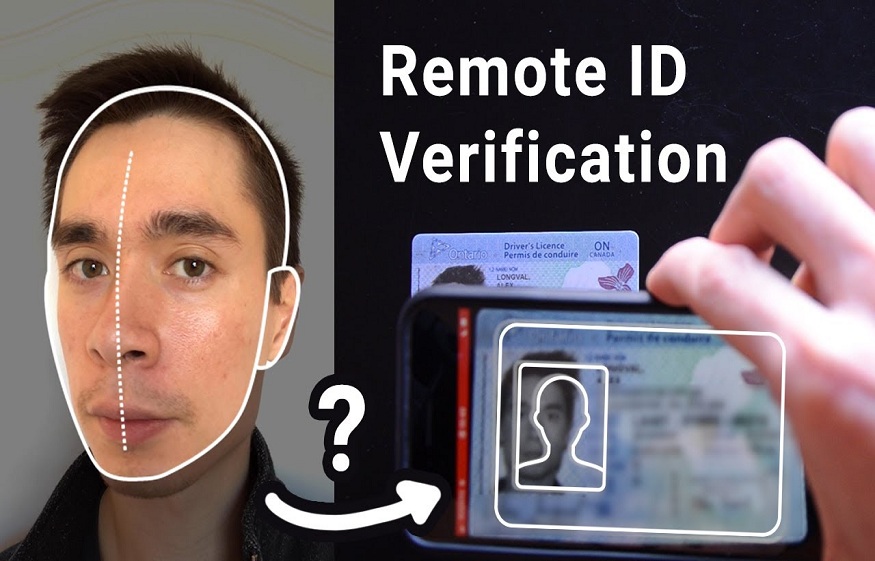ID verification is the process of confirming a user’s identity and linking their face to an identity document so they can onboard in your app or platform. There are a lot of benefits to this process, including lower risk of fraud and quicker on-boarding time. Keep reading for all you need to know!
What is ID verification?
ID verification is the process of verifying the identity of an individual. This can be done through a variety of methods, including but not limited to: government-issued ID cards, biometrics, passports, and driver’s licences. The purpose of ID verification is to ensure that the person claiming to be someone they’re not actually is who they say they are.
There are many reasons why someone might want to verify another person’s ID. For example, employers may want to confirm the identity of new employees before hiring them. Online retailers may want to verify the identity of customers before allowing them to make purchases. And banks may want to verify the identity of account holders before allowing them to access their funds.
ID verification can help prevent fraud and other illegal activities. By verifying someone’s identity, you can help ensure that they are who they say they are and that they’re not trying to commit fraud or engage in other illegal activity.
There are a few different ways that you can go about verifying someone’s ID. The most common method is to check for government-issued ID cards, such as a driver’s license or passport. You can also use biometrics, such as fingerprints or iris scans, to verify someone’s identity. Or you may choose to use a combination of methods, such as checking an ID card and comparing it to a photo or video of the person in question.
How does it work?
ID verification is the process of confirming that a person is who they say they are. This can be done through a variety of means, including providing documentation, using biometric data, or answering questions about personal information.
The purpose of ID verification is to ensure that someone is who they claim to be in order to prevent fraud or other malicious activity. By verifying someone’s identity, businesses can make sure that the person is who they say they are and that they are not using a false or stolen identity.
There are a variety of methods that can be used for ID verification, and the best method to use will vary depending on the situation. In some cases, providing documents such as a driver’s licence or passport may be sufficient. However, in other cases where more assurance is needed, biometric data or answers to personal questions may be used.
No matter what method is used, ID verification is an important tool for businesses to protect themselves and their customers from fraud and other malicious activity.
Why use ID verification?
There are many reasons why you might want to use ID verification. Maybe you’re worried about identity theft, or you need to verify someone’s age or identity for legal reasons. Maybe you’re setting up a new online account and the site requires ID verification.
Whatever the reason, ID verification can be a helpful way to protect yourself and your information. Here are some of the benefits of using ID verification:
-It can help prevent identity theft. If you’re verifying someone’s identity before giving them access to sensitive information, it reduces the risk that they will use that information for nefarious purposes.
-It can help ensure that people are who they say they are. This is especially important when dealing with strangers online. By verifying someone’s ID, you can be sure that they are who they claim to be.
-It can help you comply with legal requirements. In some cases, such as when opening a bank account or buying alcohol, businesses are required by law to verify the customer’s ID.
ID verification is a simple and effective way to increase security and protect yourself from fraud. Whether you’re worried about identity theft or just want to be sure that someone is who they say they are, ID verification can give you peace of mind.
How can I onboard a user without ID verification?
There are a few ways to onboard a user without ID verification, though it is important to keep in mind that this may compromise the security of your system. One way to do this is by using social login, which allows users to sign in with their existing social media account. This can be convenient for users, but it also means that you will not have access to the same level of information as you would if they were verifying their ID with you directly.
Another option is to use phone number or email verification instead of ID verification. This will still allow you to collect some basic information about the user, but it will not be as secure as requiring an ID. Finally, you could allow users to create an account without any verification, but this is not recommended as it could leave your system open to abuse.




You’re a star!